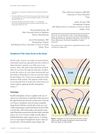 August 2022 in “IntechOpen eBooks”
August 2022 in “IntechOpen eBooks” The best treatment for Frontal Fibrosing Alopecia and Lichen Planopilaris combines oral and topical medications to reduce symptoms and stop hair loss.
 14 citations,
November 2013 in “Facial Plastic Surgery Clinics of North America”
14 citations,
November 2013 in “Facial Plastic Surgery Clinics of North America” Hair transplant complications can be avoided with proper training and understanding.
 23 citations,
October 2018 in “Expert Opinion on Drug Safety”
23 citations,
October 2018 in “Expert Opinion on Drug Safety” Consider benefits and risks of new alopecia treatments for safety.
 August 2016 in “InTech eBooks”
August 2016 in “InTech eBooks” Esthetic surgery complications can include infections, nerve injury, and more; proper evaluation and technique help prevent them.
 January 2012 in “Current Therapy In Oral and Maxillofacial Surgery”
January 2012 in “Current Therapy In Oral and Maxillofacial Surgery” Endoscopic forehead and brow lifting safely and consistently improves aged eyebrows, but may have complications.
 20 citations,
February 2003 in “Facial Plastic Surgery”
20 citations,
February 2003 in “Facial Plastic Surgery” Treat adult facial vascular anomalies with lasers, surgery, or observation, depending on the patient's specific condition.
 4 citations,
September 2011 in “Expert Review of Dermatology”
4 citations,
September 2011 in “Expert Review of Dermatology” Various treatments exist for alopecia areata, but none are completely satisfactory; choice depends on age, disease extent, and preference.
 1 citations,
September 2001 in “Dermatologic Therapy”
1 citations,
September 2001 in “Dermatologic Therapy” Estheticians in dermatology improve patient satisfaction and loyalty with proper training and planning.
 1 citations,
April 2017 in “Drugs & Therapy Perspectives”
1 citations,
April 2017 in “Drugs & Therapy Perspectives” Use antiandrogens and other treatments for hair loss.
1 citations,
December 2023 in “Life” PRP helps skin heal, possibly through special cells called telocytes.
 110 citations,
August 2016 in “Drugs”
110 citations,
August 2016 in “Drugs” Minoxidil is the only FDA-approved topical drug for treating male or female pattern hair loss, and other medications like finasteride and dutasteride can also increase hair growth.
 33 citations,
January 2015 in “Journal of Cosmetic Dermatology”
33 citations,
January 2015 in “Journal of Cosmetic Dermatology” Familial frontal fibrosing alopecia affects premenopausal women too, and early diagnosis is important, but no proven medication exists yet.
 1 citations,
June 2010 in “Expert Review of Dermatology”
1 citations,
June 2010 in “Expert Review of Dermatology” Covers common skin issues in kids, their diagnosis, treatment, and need for specialist care.
 1 citations,
January 2018
1 citations,
January 2018 Tattooing guidelines focus on safety, hygiene, and following rules.
 1 citations,
January 2018
1 citations,
January 2018 Improve burn patients' appearance and function using various techniques, teamwork, and psychological support.
 55 citations,
October 2009 in “Clinics in Plastic Surgery”
55 citations,
October 2009 in “Clinics in Plastic Surgery” Burn reconstruction improves with new techniques, materials, and tissue engineering.
 8 citations,
November 2018 in “Australasian Journal of Dermatology”
8 citations,
November 2018 in “Australasian Journal of Dermatology” Frontal fibrosing alopecia in families shows similar signs to individual cases and may have a genetic link.
 84 citations,
April 2005 in “Dermatologic Clinics”
84 citations,
April 2005 in “Dermatologic Clinics” Treatments for melanin disorders exist, but more effective options needed.
 3 citations,
January 2018 in “BioMed Research International”
3 citations,
January 2018 in “BioMed Research International” Achieving perfect facial plastic surgery requires personalized plans, proper patient selection, advanced techniques, and ongoing surgeon education.
 281 citations,
January 2013 in “British Journal of Dermatology”
281 citations,
January 2013 in “British Journal of Dermatology” Manage vitiligo with treatments, address emotions, and use camouflage techniques.
 10 citations,
May 2007 in “Journal of Prosthetic Dentistry”
10 citations,
May 2007 in “Journal of Prosthetic Dentistry” Tattoo markers help place ear prostheses easily and improve acceptance.
 48 citations,
July 2001 in “Clinics in Dermatology”
48 citations,
July 2001 in “Clinics in Dermatology” Cosmetics enhance beauty, fix defects, and intimidate enemies, with varying cultural standards and alternative methods.
 2 citations,
April 2017 in “Actas Dermo-Sifiliográficas”
2 citations,
April 2017 in “Actas Dermo-Sifiliográficas” Best treatment for Frontal Fibrosing Alopecia is 5-alpha-reductase inhibitors and intralesional corticosteroids.
 10 citations,
May 2015 in “International Journal of Women's Dermatology”
10 citations,
May 2015 in “International Journal of Women's Dermatology” New treatments for skin and hair disorders in women of color address unique biological differences and include specific acne medications, sunscreens, skin lighteners, and hair care adjustments.
 2 citations,
May 2018 in “PubMed”
2 citations,
May 2018 in “PubMed” Follicular Unit Extraction should be limited to preserve donor hair density and avoid side effects.
 23 citations,
April 2021 in “Journal of Clinical Medicine”
23 citations,
April 2021 in “Journal of Clinical Medicine” Frontal Fibrosing Alopecia's cause is unclear, affects mainly postmenopausal women, and current treatments focus on stopping hair loss rather than regrowth.
 December 2017 in “Springer eBooks”
December 2017 in “Springer eBooks” Treat pediatric skin issues with accurate diagnosis, multidisciplinary team, and various treatment options.
 May 2004 in “Pediatric Dermatology”
May 2004 in “Pediatric Dermatology” Atopic dermatitis may have genetic causes and can be treated with pharmacologic methods, glycerin creams, and controlling Staphylococcus aureus colonization.
 March 2024 in “International journal of pharmaceutical sciences and drug research”
March 2024 in “International journal of pharmaceutical sciences and drug research” Androgenetic alopecia is influenced by various factors and can be treated with medications, procedures, and non-drug methods.
 1 citations,
December 2015 in “Dermatologic Surgery”
1 citations,
December 2015 in “Dermatologic Surgery” Double trichophytic closure effectively treats thin scalp scars and reduces patient costs.





























